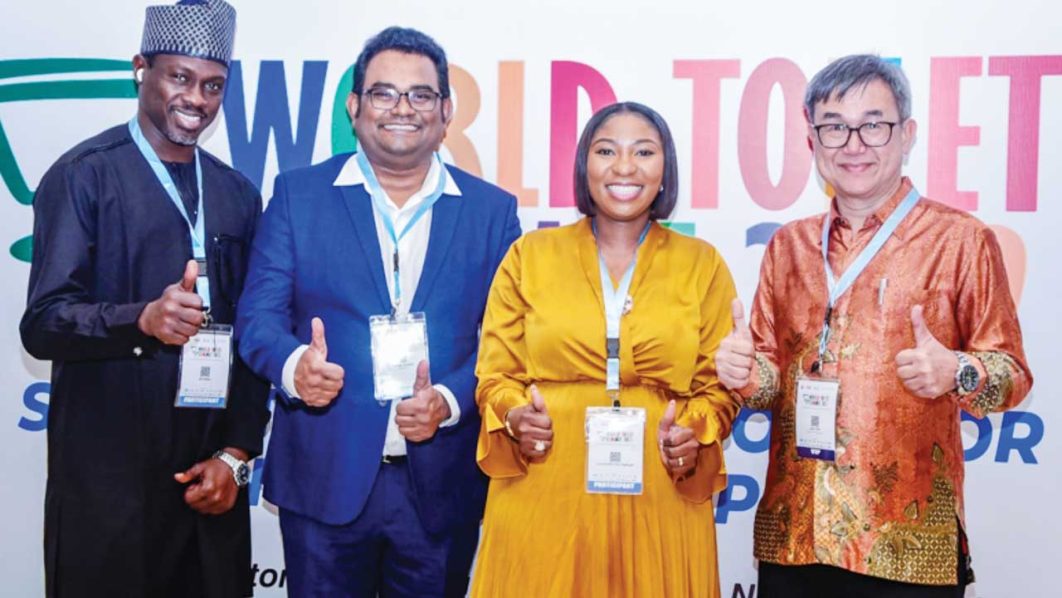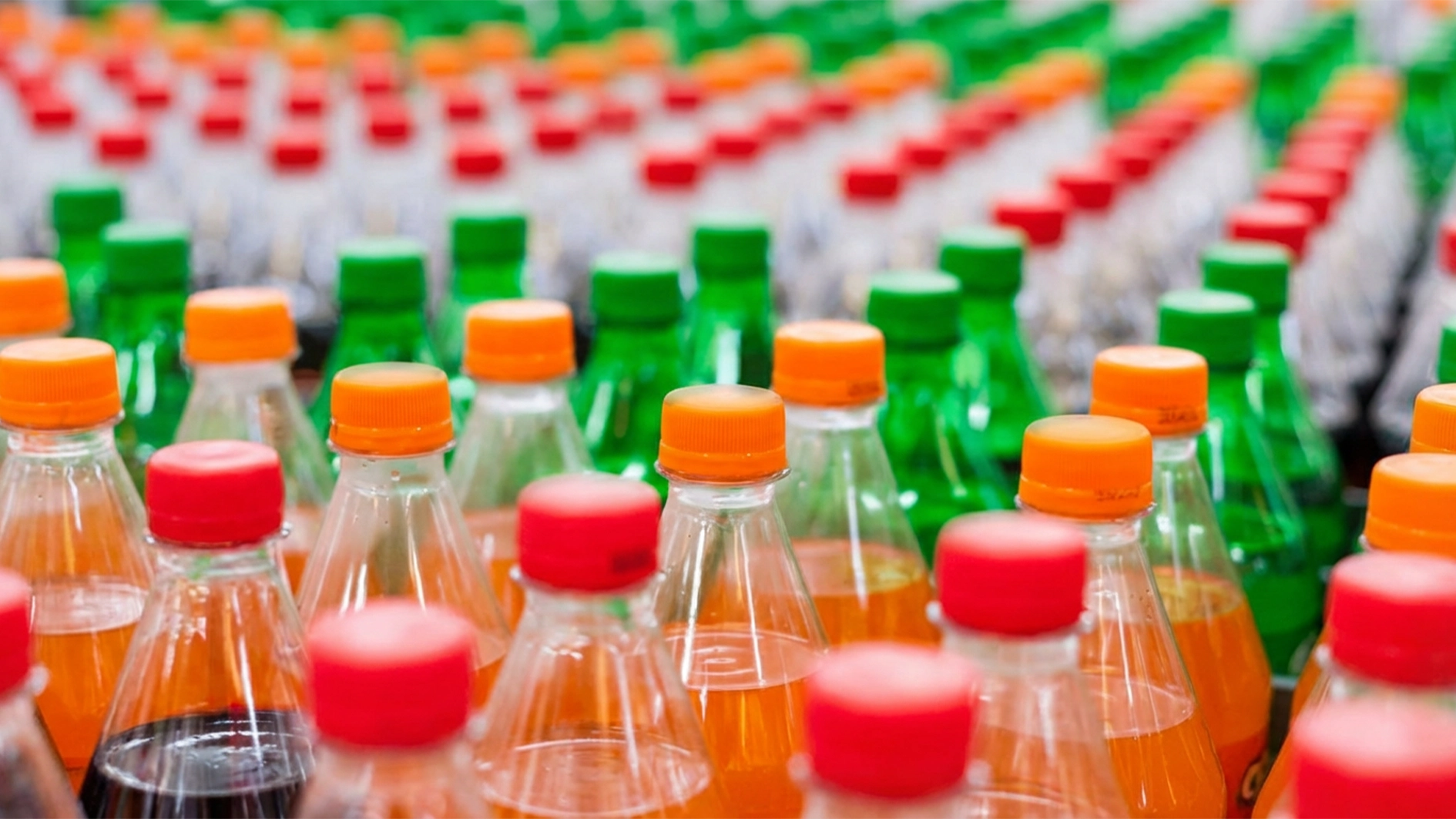
•World Toilet Summit: Harpic partners FG, private sector to drive global interventions on improved sanitation exercises, awareness
As part of efforts to ensure that Nigeria achieves the target of becoming open defecation-free (ODF) by 2025 and save more than 100,000 children under five years of age from dying each year owing to diarrhoea; of which 90 percent are directly attributable to unsafe water and sanitation, stakeholders have intensified campaigns.
In 2018, the Federal Government inaugurated a campaign to end open defecation and is committed to ending the practice, as well as improving sanitation across the country.
Consequently, Nigeria played host to the World Toilet Summit for the first time, with one of the country’s leading toilet cleaning solution, Harpic, manufactured by Reckitt Nigeria, partnering with the Federal Government and Organised Private Sector on Water, Sanitation, and Hygiene (OPS-WASH) to reinforce and reiterate the need to maintain clean toilets and end open defecation.
The event was organised to drive global interventions towards improved sanitation exercises and reinforce awareness on the issue of open defecation and low investment in the sanitation value chain, which has greatly reduced the African Gross Domestic Product (GDP) over the years.
The summit, which was held in Abuja, had stakeholders in attendance including President Muhammadu Buhari, represented by the Vice President, Prof. Yemi Osinbajo, Ministers from relevant Ministries, and developmental agencies like United Nations Children Fund (UNICEF) and WaterAid.
Meanwhile, during a panel discussion on the topic, “Partners Perspective on Sanitation Innovations for Economic Development”, Marketing Director, Reckitt Sub Saharan Africa, Tanzim Rezwan suggested that Nigeria can convert the challenge of open defecation into an opportunity and make it an enabler. He said: “The critical factor is to have everyone across the sanitation sector working together in synergy to achieve the common goal and collectively facilitate the process of bringing it to fruition.”
Rezwan added: “We are working with the government in every way we can to achieve zero open defecation in Nigeria. As part of our agenda to continuously drive innovative ideas that will ensure more people have access to clean toilets, we recently introduced a new product, the Harpic Sachet, which has now made it possible for the masses to have access to a clean toilet with just N30. We will also continue to drive the awareness and education through our TV and digital communications as well as community programmes he concluded.
“Harpic has been enhancing the toilet experience and championing proper toilet hygiene in Nigeria, driving awareness of appropriate toilet usage and hygiene through household engagement and community sensitisation. The brand has donated over 100 toilet units and refurbished over 10 public toilets in Lagos State since 2016.”
In his address, Osinbajo noted that globally an estimated two-thirds of people who lack basic access to sanitation services live in rural areas, nearly half of them in Sub Saharan Africa, while 92 percent of the world’s population practicing open defecation live in these areas.
Explaining the government’s efforts in the area of sanitation and hygiene, Osinbajo said: “As a government, we have consistently affirmed our commitment to the development of the water, sanitation, and hygiene sector, and have demonstrated our aspirations through the many initiatives we have championed, including a coordination platform for private sector organisations working in the wash sector known as OPS-WASH to ensure effective coordination of private sector interventions.”
Also speaking at the summit, the founder of the World Toilet Organisation, Prof. Jack Sim, expressed concern that “over two million children and people die of diarrhoea every year. “It is serious that open defecation is unspoken everywhere and the standard of living of people cannot be improved if the challenge of open defecation is not discussed. The founder, therefore, urged the world to feel free to talk about toilet usage. Feel free to talk about toilets, it is normal,” Sim said.
The World Toilet Organisation had granted hosting rights to the OPS-WASH in this year’s selected host country – Nigeria for the 2022 World Toilet Summit – an event that brought together policymakers, non-profit organisations, academics, and other sector leaders to address the sanitation crisis that affects 3.6 billion people worldwide.
Held from November 18-19, the yearly summit aligns with United Nations World Toilet Day, which raises awareness that toilets – and the sanitation systems that support them – are often underfunded, poorly managed, or neglected. As a result, global health, the environment, and the global economy are put at risk, with devastating consequences for the poorest and most marginalised communities.
OPS-WASH is founded on SWA’s key objectives of building and sustaining political will, championing multi-stakeholder collaboration and facilitating investment in water and sanitation. Nigeria emphasised these values at the Summit, as well as featured sanitation technologies from across the globe that are scalable, sustainable, and cost-effective.
These technologies are particularly pertinent to Nigeria’s own water and sanitation strategy, where one-third of the population drinks fecal contaminated water at home and 46 million people are still practicing open defecation.
Meanwhile, the World Toilet Day, celebrated on November 19 every year, is about taking action to tackle the global sanitation crisis and achieve Sustainable Development Goal 6: water and sanitation for all by 2030.
The World Toilet Day 2022 campaign, called ‘Making the invisible visible’, focuses on the impact of the sanitation crisis on groundwater, exploring how inadequate sanitation systems spread human waste into rivers, lakes and soil, polluting underground water resources.
Groundwater is the world’s most abundant source of freshwater. It supports drinking water supplies, sanitation systems, farming, industry and ecosystems. As climate change worsens and populations grow, groundwater is vital for human survival.
The central message of World Toilet Day 2022 is that safely managed sanitation protects groundwater from human waste pollution. Currently, the world is seriously off track to meet the promise of Sustainable Development Goal (SDG) 6.2: to ensure safe toilets for all by 2030. The campaign urges governments to work on average four times faster to ensure SDG 6.2 is achieved on time.






